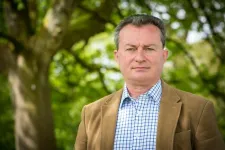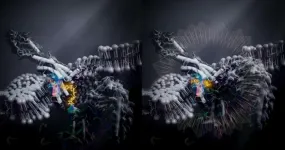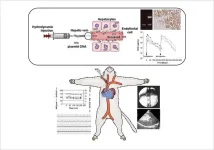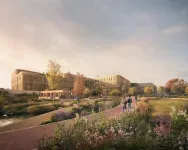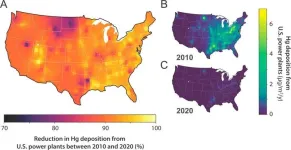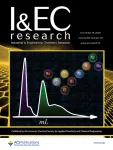(Press-News.org) Professor Laurence Hurst, Director of the Milner Centre for Evolution at the University of Bath, has been recognised for his world-leading research into genetics and evolution with a prestigious Humboldt Prize.
The Humboldt Prize, also known as the Humboldt Research Award, is an award given by the Alexander von Humboldt Foundation of Germany to internationally renowned scientists and scholars who work outside of Germany in recognition of their lifetime's research achievements.
Named after the Prussian naturalist and explorer Alexander von Humboldt, recipients of the prize are academics whose “fundamental discoveries, new theories or insights have had a significant impact on their own discipline and who are expected to continue producing cutting-edge academic achievements in the future".
Prof Hurst, who has been Professor of Evolutionary Genetics at the University of Bath since 1997, is one of the most highly cited evolutionary biologists in Europe, who has authored more than 300 research papers.
In 2014, he made the first discovery of “naïve-like” stem cells, the so-called “Holy Grail” of stem cell science, which can be turned into any other type of cell.
He also helped set up the Milner Centre for Evolution in 2018 to use evolutionary science to solve global challenges, as well as improving the public engagement with and teaching of evolution in schools.
He became an elected member of the European Molecular Biology Organization (EMBO) in 2004, was awarded the Scientific Medal of the Zoological Society of London in 2003 and the Genetics Society Medal, by the Genetics Society in 2010.
In 2015 Professor Hurst was elected a Fellow of the Academy of Medical Sciences, won the Publication of the Year Prize from the German Stem Cell Society and was elected a Fellow of the Royal Society, the highest scientific honour in the UK.
He was the President of the Genetics Society from 2018-21 and has been Director of the University’s Milner Centre for Evolution since its foundation in 2018.
At Bath, he has previously been awarded the Vice-Chancellor’s research award and also recognised for training and mentoring the next generation of scientists with the inaugural Excellence in Doctoral Supervision Prize.
Professor Hurst will receive €60,000 in prize money and intends to use this in part to fund a visit to his colleagues at the Max Delbrück Centre in Berlin next spring, with whom he collaborates to use knowledge of how genes and genomes evolve to improve medicine.
Professor Hurst said: “I am delighted and honoured to have my research recognised in this way.
“Evolution is the fundamental bedrock of biology – it not only explains the complexity of the living world around us, and how things came to be that way, but can also be applied to global challenges we face today, such as fighting antibiotic resistance, increasing biodiversity and improving medical treatments for cancer and rare genetic diseases.
“I have several well-established and very fruitful research collaborations with colleagues in Germany and so this award means a lot to me.”
Vice-Chancellor and President of the University of Bath, Professor Ian White said: “I would like to congratulate Professor Hurst on this most prestigious award, which rightly gives full international recognition to his world-leading research on the evolution of genes and genomes.
“His work at the Milner Centre for Evolution established Bath as an international centre of excellence for evolution research and I look forward to seeing how his findings will translate into advancing medicine.”
END
Bath Professor given international award recognizing lifetime research achievements
2023-06-08
ELSE PRESS RELEASES FROM THIS DATE:
Employers should think twice before implementing peer recognition programs
2023-06-08
In fast-paced and often rapidly changing work environments, employers continue to seek new and improved ways to recognize employees in the workplace. However, new research from the University of Waterloo suggests that public peer recognition may backfire by enabling comparisons among employees, and these comparisons may make some employees feel unfairly treated.
“Employers have sought out various peer recognition systems in an effort to promote employee helping behaviour,” said Pei Wang, PhD ...
A new way to develop drugs without side effects
2023-06-08
Have you ever wondered how drugs reach their targets and achieve their function within our bodies? If a drug molecule or a ligand is a message, an inbox is typically a receptor in the cell membrane. One such receptor involved in relaying molecular signals is a G protein-coupled receptor (GPCR). About one-third of existing drugs work by controlling the activation of this protein. Japanese researchers now reveal a new way of activating GPCR by triggering shape changes in the intracellular region of the receptor. This new process can help researchers design drugs with fewer or no side effects.
If the ...
Liver lobe-specific hydrodynamic gene delivery to baboons: A preclinical trial for hemophilia gene therapy
2023-06-08
Niigata, Japan - The research group of Professor Kamimura in Niigata University have applied the novel, liver lobe-specific hydrodynamic delivery procedure to primates (baboons) for the first time. “Delivery of a plasmid that expresses a therapeutic gene for human hemophilia achieved therapeutic levels of human factor IX gene expression lasting for 200 days after the delivery of a plasmid”, says Prof. Kamimura. In addition, the results demonstrated the efficacy of repeated hydrodynamic gene delivery into the same liver lobes. Furthermore, no plasmid was introduced into organs other than the livers ...
One-month of COVID-19 lockdown cost heart attack patients up to two years of life
2023-06-08
Sophia Antipolis, 8 June 2023: Patients who had heart attacks during the first COVID-19 lockdown in the UK and Spain are predicted to live 1.5 and 2 years less, respectively, than their pre-COVID counterparts. That’s the finding of a study published today in European Heart Journal – Quality of Care and Clinical Outcomes, a journal of the European Society of Cardiology (ESC).1 The additional costs to the UK and Spanish economies are estimated at £36.6 million (€41.3 million) and €88.6 million, respectively, largely due to absence from work.
“Restrictions to treatment of life-threatening conditions have immediate and long-term ...
Long Covid can impact fatigue and quality of life worse than some cancers
2023-06-08
Fatigue is the symptom that most significantly impacts the daily lives of long Covid patients, and can affect quality of life more than some cancers, finds a new study led by researchers at UCL and the University of Exeter.
The research, published in BMJ Open and funded by the National Institute for Health and Care Research (NIHR), examines the impact of long Covid on the lives of over 3,750 patients who were referred to a long Covid clinic and used a digital app as part of their NHS treatment for the condition.
Patients were asked to complete questionnaires on the app about how long Covid was affecting them – considering the impact of long Covid on their day-to-day activities, ...
Gradual supported release of primates into the wild shown as effective
2023-06-08
Gradually re-introducing primates into the wild with post-release support has, for the first time, been scientifically shown to improve their well-being.
Every year, rescue centres release animals, that are deemed ready, into the wild, based on the assumption that the animals will thrive most in their natural habitat, but this assumption has never been scientifically tested with primates.
A team from Durham University, Disney’s Animals, Science and Environment and the Jane Goodall Institute ...
Essential investment in plant and microbial research in Norwich, UK, confirmed
2023-06-08
Development of an exciting, ground-breaking plant and microbial science and innovation hub can go ahead with confirmation of funding announced today.
The transformational investment will fund new cutting-edge, world-class facilities for the John Innes Centre (JIC) and The Sainsbury Laboratory (TSL) at the heart of the Norwich Research Park. This will deliver a step change in our capability to translate scientific knowledge into bio-based solutions in response to some of society’s most pressing challenges.
As well as transforming the existing capabilities of the John Innes Centre and The Sainsbury Laboratory, both internationally recognised ...
Despite major progress nationally, two mercury emissions hotspots remain
2023-06-07
Missing from partisan political debates over regulations affecting the energy sector is the stunning success of the federal government’s signature environmental laws. A prime example: the U.S. Environmental Protection Agency’s rules aimed at reducing the harmful effects of hazardous air pollutant (HAP) emissions from fossil fuel-fired power plants known as the Mercury and Air Toxics Standards, or MATS.
A new study from the Harvard John A. Paulson School of Engineering and Applied Sciences (SEAS) shows that in the decade since the standard was ...
What your likes, posts really say about you
2023-06-07
The myriad ways in which we use social media can be grouped into four broad categories, each of which is associated with a cluster of specific personality and behavioral traits, suggests new research from Washington University in St. Louis.
“Social media is here to stay, so clarifying how people use social media and raising awareness of these findings are crucial first steps toward ultimately helping people understand how they can avoid the negative aspects of social networking and engage in healthier social media usage,” said Alison B. Tuck, first author of the study and a PhD candidate in clinical psychology in Arts & Sciences.
The study, published online ...
Scientists develop inorganic resins for generating and purifying radium and actinium
2023-06-07
The Science
Targeted alpha therapy can destroy cancerous cells without harming healthy cells. It’s especially useful for treating metastasized cancers. The Department of Energy (DOE) Office of Science’s Isotope Program is developing and marketing novel radioactive isotopes for targeted alpha therapy. One method of making one isotope, actinium-225, involves bombarding radium targets with neutrons. This method poses a challenge: how to chemically separate the radium from the actinium. This can destroy typical separation equipment due to a radioactive process called alpha decay. Now, researchers ...
